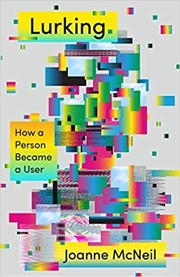Provocative
3 stars
This book is a good companion to Brotopia, which opens up deeper and more critical discussions regarding the context and struggles surrounding the Internet and the growth of the big platforms of today.
Still very US-centric, with the occasional mentions of tragedy elsewhere like the Myanmar genocide. The feeling I get from the flow of the book is that it sometimes reads like a sociology essay, sometimes a free form op-ed, a bit of memoir, with elements of tweet-deep shower-thoughts. It keeps the text interesting and not so monotonous as one would expect from a historian/critic, but it also made me feel like the book didn't really have a direction or a central thesis. It just is, like digital content is allowed to.
I consumed this in audio-book form, narrated by the author. I'd say the near monotone reading sort of matches the insider-but-amateur angle of the …
This book is a good companion to Brotopia, which opens up deeper and more critical discussions regarding the context and struggles surrounding the Internet and the growth of the big platforms of today.
Still very US-centric, with the occasional mentions of tragedy elsewhere like the Myanmar genocide. The feeling I get from the flow of the book is that it sometimes reads like a sociology essay, sometimes a free form op-ed, a bit of memoir, with elements of tweet-deep shower-thoughts. It keeps the text interesting and not so monotonous as one would expect from a historian/critic, but it also made me feel like the book didn't really have a direction or a central thesis. It just is, like digital content is allowed to.
I consumed this in audio-book form, narrated by the author. I'd say the near monotone reading sort of matches the insider-but-amateur angle of the content, but fatigue made me listen in shorter bits than what I usually do. Differently from most non-fiction out there, if attention disperses and one misses a paragraph of this book there's a decent chance you actually lost something.


